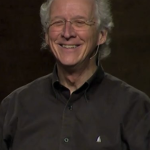 The following is a discussion on particular redemption which took place between my friend, John Hendryx and a non-Calvinist (Joshua) in response to a quote someone posted online by John Piper.
The following is a discussion on particular redemption which took place between my friend, John Hendryx and a non-Calvinist (Joshua) in response to a quote someone posted online by John Piper.
“The main point of the doctrine of limited atonement is not to assert that Christ did not die for everyone in the sense that John 3:16 says he did: “For God so loved the world, pills that he gave his only Son, that whoever believes in him should not perish but have eternal life.” That is absolutely true: Christ died so that whoever believes in him will have eternal life. Christ’s death is sufficient for all, and should be offered to all as gloriously sufficient to save them if they will believe. “Limited atonement” does not deny any of that…
Today we focus on the third “D”—the duty that we have to believe. “For God so loved the world that he gave his only begotten Son, that whoever believes in him might not perish.”
Let me focus our attention on this act of believing from several different angles.”
“Believing is our link with the love of God. Notice how Jesus speaks of God’s love-rescue: God so loved the world so that believers will not perish. One of the ways to express this is that the Love of God is sufficient to save the world, but efficient to save those who believe. Efficient means his love actually saves believers. It is effective in saving them from perishing. The love of God does not have this effect in the lives of those who do not believe. They perish.” (John Piper)
Joshua: What good is saying it’s “sufficient for all” if it’s not intended for all? It’s like a tease to the “non-elect”.
Response: you can’t tease someone who does not want it. The call to believe the gospel goes out to all. If men reject Jesus it is their own fault. God does not coerce them or hold them back … they do so on their own. The opportunity to believe is open to all… but no one believes … yet God is still merciful to more ill deserving sinners than any man can count.
Joshua: Can’t tease someone who doesn’t want it? NOBODY wants it prior to conversion. Do you believe 1 Timothy 4:10?
Response: Joshua, that was the point. Nobody wants Christ prior to regeneration. (John:6:63, 65; 1 Cor 2:14; 12:3) The gospel call to believe goes out to all people without exception. But only those whom God inwardly calls by the Holy Spirit come to Christ. The Apostle declares, “we preach Christ crucified, a stumbling block to Jews and folly to Gentiles, (universal rejection) but to those who are called, both Jews and Greeks, Christ the power of God and the wisdom of God (salvation) – 1 Cor 1:23-24.
There are non redemptive benefits to the atonement, but the redemptive benefits (such as effectual grace) go to the elect only.
Calvinists have always believed that the atonement has non redemptive benefits even for the non elect but the main issues is REDEMPTIVE benefits, which is why we call it particular redemption… check out Jonathan Edwards acknowledging non redemptive benefits for all.. especially pay attention to the last line.
“Universal redemption must be denied in the very sense of Calvinists themselves, whether predestination is acknowledged or no, if we acknowledge that Christ knows all things. For if Christ certainly knows all things to come, he certainly knew, when he died, that there were such and such men that would never be the better for his death. And therefore, it was impossible that he should die with an intent to make them (particular persons) happy. For it is a right-down contradiction [to say that] he died with an intent to make them happy, when at the same time he knew they would not be happy-Predestination or no predestination, it is all one for that. This is all that Calvinists mean when they say that Christ did not die for all, that he did not die intending and designing that such and such particular persons should be the better for it; and that is evident to a demonstration. Now Arminians, when [they] say that Christ died for all, cannot mean, with any sense, that he died for all any otherwise than to give all an opportunity to be saved; and that, Calvinists themselves never denied. He did die for all in this sense; ’tis past all contradiction. -Jonathan Edwards [1722], The “Miscellanies”: (Entry Nos. a–z, aa–zz, 1–500) (WJE Online Vol. 13) , Ed. Harry S. Stout, page 1 74”
Joshua: Yes I’m familiar with Edwards and all the Calvi arguments in general. I’ll stick with what Scripture says.
Response: Joshua, it appears you missed the point … I was responding to your question about 1 Tim 4:10. That Jesus is the savior of all men especially those who believe – That all men are called and given an opportunity to believe the gospel… Calvinists do not disagree with that.




